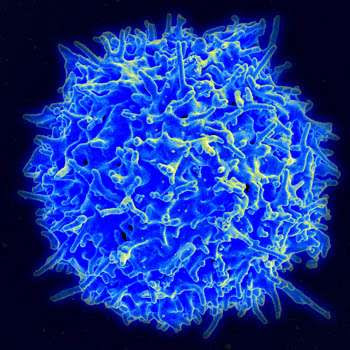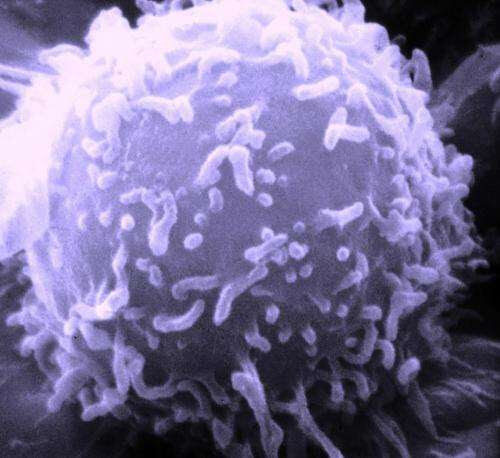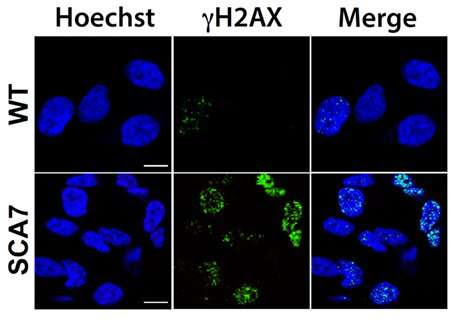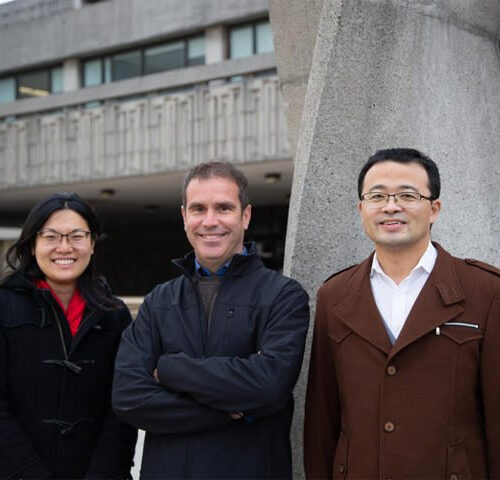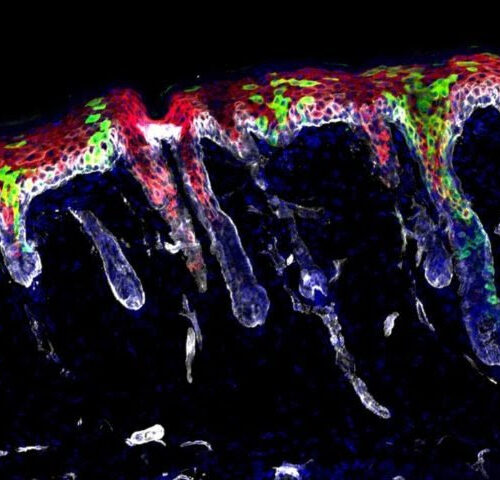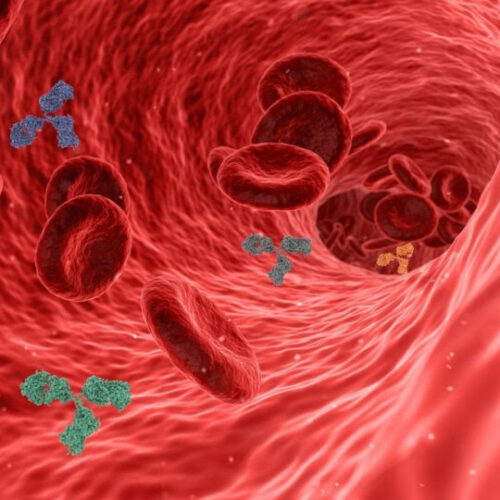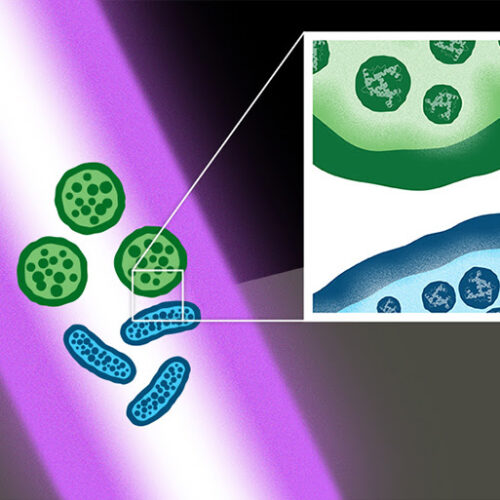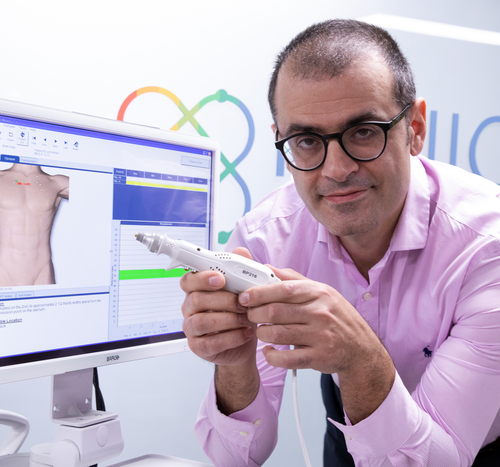by Memorial Sloan Kettering Cancer Center Scanning electron micrograph of human T lymphocyte or T cell. Credit: NIAID/NIH To an immunologist, autoimmune diseases like Type 1 diabetes are the polar opposite of cancer. In the former, the immune system goes into overdrive and attacks the body’s own organs in a relentless manner, eventually causing disease;...
Researchers discover that proteasome molecules can join forces to prevent cancer
by University of Montreal Electron microscopic image of a single human lymphocyte. Credit: Dr. Triche National Cancer Institute Managing the waste that cells produce is an essential function of the human body, as any defect in its elimination mechanisms can lead to cancer and neurodegenerative diseases. Now a Canadian study sheds light on a new...
Linkage confirmed between altered DNA repair, damage in neurodegenerative conditions causing movement disorders
by University of California, Irvine Increased DNA damage in neurons from SCA7 patients. Skin cells from an SCA7 patient and an unaffected sibling (WT), generated induced pluripotent stem cells. Those stem cells were used to make neurons which were grown in culture. Illustrated here are stained neurons with Hoechst to show the nucleus, and with...
Unsung gene is key to how antibodies develop
Researchers at the University of Toronto have discovered that an overlooked gene plays a major role in the development of antibodies, which help the immune system recognize and fight viruses including SARS-CoV-2, bacteria, and other causes of infectious disease. The gene – FAM72A – facilitates production of high-quality antibodies by enabling the effect of an enzyme called...
Stem cell memories may drive wound repair—and chronic disease
A trifling paper cut is a site of frenzied activity. Within it, a squad of epidermal stem cells briskly regenerate to patch up the wound. A closer inspection of this war-torn swath of epidermis will reveal that, while some of the stem cells are native to the area, others are newcomers—former hair-producing stem cells that,...
Back pain can be better localized using a newly developed technique
by Patrick Lejtenyi, Concordia University Credit: CC0 Public Domain Working from home during the COVID-19 pandemic has taken a toll on the health of many and led to increased reports of low back pain. Low back pain is the most common musculoskeletal problem that requires medical attention—an estimated 80 percent of adults will experience it...
Reducing Systemic Inflammation via TLR4 Knockout
TLR4 is one of a number of cell surface receptors that mediate innate immune cell reactions to molecules indicative of damage in the body. Some fraction of the chronic inflammation of aging is caused by increases in damage-associated molecular patterns that trigger receptors of this nature, and consequent maladaptive reactions on the part of the innate immune system. Does it help to block this...
About 12 Percent of Patients Who Receive Common Cardiac Device Implants Develop Persistent Opioid Use
About 12 percent of patients who receive implantable cardiac devices such as a pacemaker or defibrillator and fill an opioid prescription after surgery will consistently use the pain medication in the months afterward, raising the potential for addiction following these common procedures and identifying another pathway that could contribute to the national opioid crisis, according...
Laser Kills Multidrug-Resistant Bacteria for Wound and Blood Decontamination
NOVEMBER 29TH, 2021 CONN HASTINGS MEDICINE, MILITARY MEDICINE, PLASTIC SURGERY, SURGERY Scientists at Washington University School of Medicine in St. Louis have developed an ultrashort-pulse laser that can kill multidrug-resistant bacteria and their spores, and without damaging human cells. The laser works by vibrating and breaking protein structures within the bacterial cell, resulting in biochemical disruption...
Diagnosing breast cancer
UNIVERSITY OF UTAH IMAGE: UNIVERSITY OF UTAH ELECTRICAL AND COMPUTER ENGINEERING ASSISTANT PROFESSOR BENJAMIN SANCHEZ-TERRONES IS DEVELOPING A DIAGNOSTIC TOOL THAT USES SAFE, LOW-VOLTAGE ELECTRICITY INSTEAD OF RADIATION TO DETECT BREAST CANCER. THE DEVICE THEREFORE CAN BE USED REPEATEDLY AND ON YOUNGER PATIENTS SAFELY. CREDIT: DAN HIXSON/UNIVERSITY OF UTAH COLLEGE OF ENGINEERING Nov. 30, 2021...

